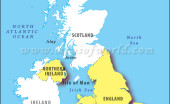Molly Minturn - My family is heartbroken to share that my father died in surgery on Monday, Feb. 10. It…
Wednesday Night #963
Written by Diana Thebaud Nicholson // August 16, 2000 // Economy, Geopolitics, Health & Health care, Margaret Lefebvre, Reports, Wednesday Nights // Comments Off on Wednesday Night #963
16 August 2000
The SUMMONS
Thoughts from Couchiching
The single most significant determinant of health is the inequality gradient between the have and have not populations in a society.
Sir Michael Marmot University College, London
The American political system makes it virtually impossible for the general population to directly influence public policy . The Canadian system has public accountability at the very core of governance.
Alvin R. Tarlov, MD Rice University, Houston, TX
Margaret Lefebvre (newly elected Mme President of the Couchiching Institute) is back from this year’s conference on THE FUTURE OF HEALTH IN CANADA : THE ART OF THE POSSIBLE and is anxious to share the wisdom of the speakers (see above). Given that the Conference was held over the same weekend as the CMA meeting in Saskatoon, there are many policy issues to be pondered
Dr. Tony Deutsch will make one of his (regrettably) infrequent appearances during this year of sabbatical for him.
Kimon and Iris Valaskakis are joining us.
Also, our good friend Melanie Lauckner is here from Geneva where she works with IATA to make travel simpler (and more comfortable?) for passengers…. Recent Air Canada patrons may wish to discuss this issue with her!
PRELUDE
Amid the many returning faces, another happy surprise. Wednesday Night’s own diva, Susan Eyton-Jones, is back from Charlottesville, Virginia. The festival experience a great success, both at a professional and personal level (and she has the clippings and photos to prove it!).
THE KURSK DISASTER
Even more than graphic newspaper accounts of war or famine, the drama of one hundred and sixteen young men and boys facing a slow, cold, claustrophobic death aboard a disabled submarine lying at the bottom of the Barents Sea, cannot help but evoke emotions of horror and sympathy.
Attempts to arrive at an answer only raise further questions. If it were a U.S. Stealth Bomber that was stranded in a remote area of Alaska close to Russian territory, how would the Americans have reacted to Russia’s offer of intervention?
Was the Canadian army right in not intervening in the kidnapping of a British diplomat during the F.L.Q. crisis before requested to do so by the government of Québec?
The answer depends on whether you consider the issue to be one of sovereignty or of humanity.
Proposals of a global crisis intervention team prepared to intervene across national boundaries sound good, but considering bureaucratic delays and the wide variety of human crises requiring sophisticated equipment, it would probably not prove to be a realistic option. There are one hundred and sixteen young lives hanging in the balance, a terrible tragedy, but in terms of numbers, United Nations member nations would do far better concentrating their efforts on the elimination of famine, preventable diseases and human conflict.
The question arises as to why a rescue mission was not attempted by Britain or the United States over Russian objections, or at very least, why these nations with superior rescue technology did not move their equipment sufficiently close to the disaster to intervene when invited to do so.
Attempts to arrive at an answer only raise further questions. If it were a U.S. Stealth Bomber that was stranded in a remote area of Alaska close to Russian territory, how would the Americans have reacted to Russia’s offer of intervention?
Was the Canadian army right in not intervening in the kidnapping of a British diplomat during the F.L.Q. crisis before requested to do so by the government of Québec?
The answer depends on whether you consider the issue to be one of sovereignty or of humanity.
Proposals of a global crisis intervention team prepared to intervene across national boundaries sound good, but considering bureaucratic delays and the wide variety of human crises requiring sophisticated equipment, it would probably not prove to be a realistic option. There are one hundred and sixteen young lives hanging in the balance, a terrible tragedy, but in terms of numbers, United Nations member nations would do far better concentrating their efforts on the elimination of famine, preventable diseases and human conflict.
Couchiching Conference 2000
Although Health was the theme, the conference focused on the factors improving health rather than how to deal with illness. Costing Canadians about 9 % of GDP, health care in the present context is looked upon as an expense, but not considered are the offsetting savings involved in overcoming the human and material costs of such conditions as obesity, diabetes, hypercholesteremia and hypertension. The presence and active participation at Couchiching of the health care decision makers in the federal as well as the provincial governments augers well for a new more productive approach to human health maintenance in Canada.
Margaret Lefebvre is the new President of the Couchiching Institute – and the first from Québec. Next year, the topic will be Globalisation Revisited. More to follow.
The Economy
The threat of increased inflation and over employment appears to have passed. There will be no increase in the discount rate in next week’s announcement by the Federal Reserve. Under the surface however, it is only core inflation that is taken into account which ignores fluctuations in food and fuel prices. The increase in oil prices is currently being absorbed by profit margins, but will ultimately work its way through the system. The price of natural gas, a no-cost or low-cost byproduct of oil production, is pegged to the price of oil rather than to the actual cost of production and transmission.
Notes by Herbert Bercovitz Sculptor and Scribe
Very little Editing by Diana Thébaud Nicholson required!



